Keywords: Northern Territory Intervention
-
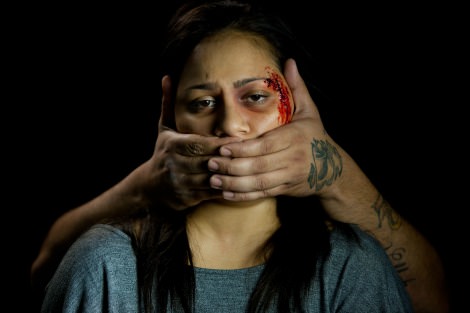
AUSTRALIA
- Dani Larkin
- 12 October 2016
1 Comment
Labelling it a 'domestic violence epidemic', Mundine questioned whether Indigenous parliamentary ministers were adequately advocating for Indigenous peoples. His remarks were ironic given that, as Linda Burney points out, 'these things have happened on his watch'. Without government funding to support grassroots, community based early intervention programs, family violence will continue. In particular, how those programs are actually being funded should be reviewed.
READ MORE 
-
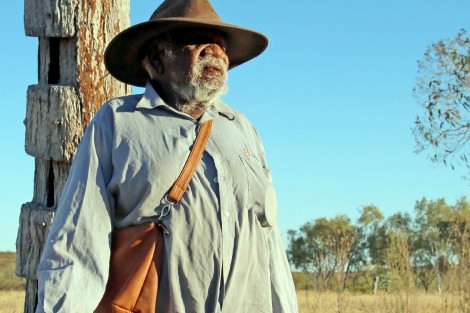
AUSTRALIA
- Moira Rayner
- 23 August 2016
9 Comments
I had been in WA for exactly a year when the local newspaper reported that a white guy had led about 200 people off Wave Rock station. Coming out of the comfortable myth that my home country of New Zealand was not racist, I was amazed to learn that Australia's Indigenous people were obliged to work without industrial protections. In 1966 it was the British Vesteys Group that had been exploiting Aboriginal people: today it is the State in the guise of 'community development', aka work for the dole.
READ MORE 
-
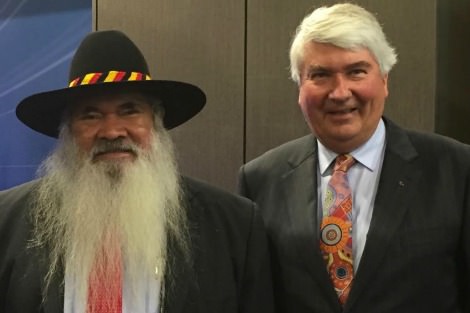
AUSTRALIA
- Frank Brennan
- 15 April 2016
21 Comments
The royal commission into Aboriginal deaths in custody, which signed off on its final reports 25 years ago this Friday, definitely improved the systems for supervision of persons in detention, reducing the risk of deaths in custody. It also led to better coronial procedures. But it failed to reverse Indigenous imprisonment rates and it did little to counter the underlying causes of Indigenous imprisonment. Back then, Patrick Dodson saw police as the main problem. Now, he thinks it's the legislators.
READ MORE 
-
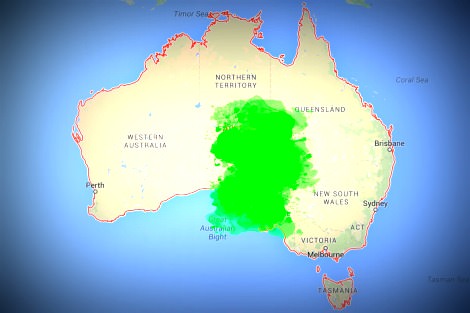
ENVIRONMENT
- Michele Madigan
- 10 February 2016
8 Comments
The South Australia Royal Commission into the nuclear fuel cycle will give its interim report at the Adelaide Town Hall next Monday. It is likely the Commission will recommend that the South Australian Premier's plan to import international high-level radioactive waste proceed, despite obvious risks and clear dangers. It would be a mistake for anyone living outside of South Australia to think that this is just a South Australian problem. Transport and containment risks are hugely significant.
READ MORE 
-
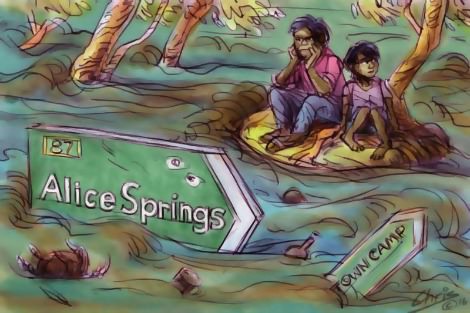
AUSTRALIA
- Mike Bowden
- 29 January 2016
9 Comments
The Northern Territory News and the ABC reported this month that the Central Australian Affordable Housing Company had been unsuccessful in its tender for continuing tenancy services to the Town Camps of Alice Springs. Despite being a product of the Intervention, CAAHC had developed a powerful model of community housing and had the support of the Central Land Council and the wider Aboriginal community. It appears that these are not attributes the NT government admires.
READ MORE 
-
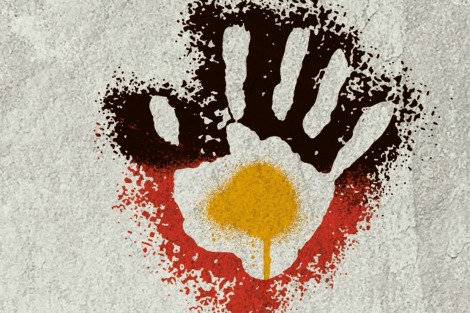
AUSTRALIA
- Frank Brennan
- 16 October 2015
2 Comments
I acknowledge those Aborigines and Torres Strait Islanders who insist that they have never ceded their sovereignty to the rest of us. I join with those Aborigines and Torres Strait Islanders who hope for better days when they are recognised in the Australian Constitution. As an advocate for modest constitutional recognition for Indigenous Australians, I respect those Aborigines and Torres Strait Islanders who question the utility of such recognition. But I do take heart from President Obama's line in his Charleston eulogy for the late Reverend Clementa C. Pinckney: 'Justice grows out of recognition'.
READ MORE
-

- Frank Brennan
- 18 September 2015
Pope Francis's concerns are not narrowly dogmatic or pedagogical but universally pastoral. He knows that millions of people, including erstwhile Catholics, are now suspicious of or not helped by notions of tradition, authority, ritual and community when it comes to their own spiritual growth which is now more individual and eclectic. He wants to step beyond the Church's perceived lack of authenticity and its moral focus on individual matters, more often than not, sexual. He thinks the world is in a mess particularly with the state of the planet — climate change, loss of biodiversity and water shortages, but also with the oppression of the poor whose life basics are not assured by the operation of the free market, and with the clutter and violence of lives which are cheated the opportunity for interior peace. He is going to great pains to demystify his office. He wants all people of good will to emulate him and to be both joyful and troubled as they wrestle with the probl
READ MORE
-
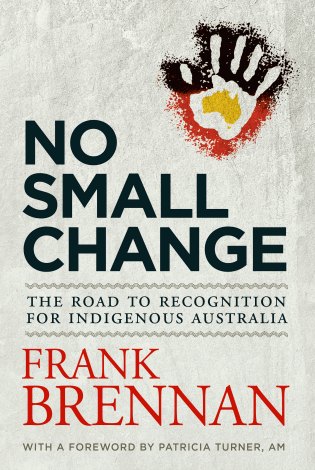
AUSTRALIA
- Frank Brennan
- 01 July 2015
6 Comments
Those Aborigines who are most at home in modern Australia tend to be those with a secure foothold in both the Dreaming and the Market. Those who are most alienated and despairing are those with a foothold in neither. Constitutional change alone won't make things better. But a good Constitution is a better complement to other measures – such as a statutory charter – than a bad one.
READ MORE 
-
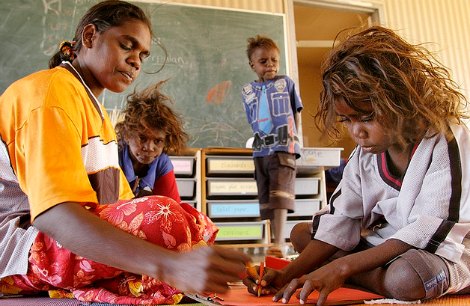
AUSTRALIA
- Luke Pearson
- 03 September 2014
13 Comments
As a former primary teacher, I have seen the importance of literacy programs for our young people, and the joy and power that comes from learning to read, especially for older students who thought they would never get to read. If schools were given adequate support, resourcing, staffing and training to better cater for the needs and interests of Indigenous students and families, there would hardly be any need to mark Indigenous Literacy Day.
READ MORE 
-
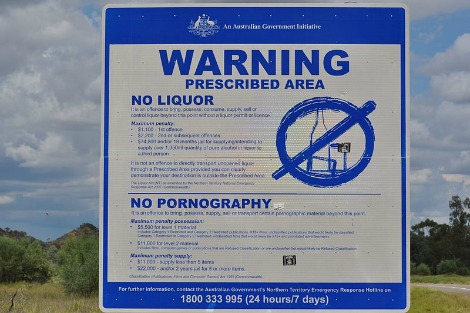
MARGARET DOOLEY AWARD
- Callum Denness
- 25 September 2013
3 Comments
Following the abuse received by Adam Goodes from a teenage spectator in the AFL's Indigenous round, and the subsequent remarks made by Eddie McGuire, the country became embroiled in a debate about racism in modern Australia. Meanwhile, the Northern Territory introduced its Mandatory Alcohol Treatment Bill which, if passed, will see more Aboriginal people incarcerated. We were too busy describing the modern face of racism to notice.
READ MORE 
-
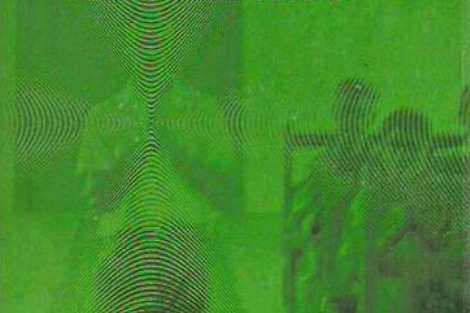
AUSTRALIA
Present members of missionary orders, when writing up the story of their predecessors, tend to present these pioneer missionaries as enlightened men and women suffering hardship to spread the gospel. The destructive effect of the approaches taken by some missionaries does not negate the good work of many others. But it is part of the story and should be told.
READ MORE 
-

AUSTRALIA
- John Falzon
- 21 December 2012
17 Comments
The greatest power for progressive social change lies with the forming of connections between the excluded. This Christmas I invite you to join me in saluting the people who experience exclusion and who are best placed to teach all of us how best to change society for the better.
READ MORE 